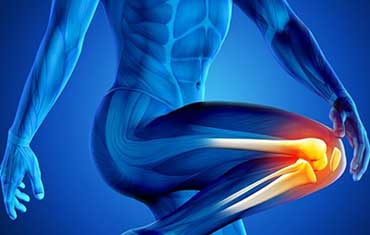KNEE PAIN

Knee pain can be a debilitating issue that affects mobility and quality of life for many individuals. It can arise from various causes, including injuries, overuse, arthritis, or underlying medical conditions. Understanding the symptoms and potential treatments for knee pain is crucial for effective management and relief.
One of the primary symptoms of knee pain is discomfort or stiffness in and around the knee joint. This may be accompanied by swelling, redness, or warmth in the affected area. Individuals with knee pain may also experience difficulty bearing weight on the affected knee, making it challenging to walk, climb stairs, or engage in physical activities.
Treatment for knee pain often begins with conservative measures, such as rest, ice therapy, compression, and elevation (RICE). Over-the-counter pain medications or anti-inflammatory drugs may also be recommended to reduce pain and inflammation. Additionally, physical therapy exercises focused on strengthening the muscles around the knee joint and improving flexibility can help alleviate strain and improve stability.
In more severe cases or if conservative treatments fail to provide relief, medical interventions such as corticosteroid injections, viscosupplementation, or surgical procedures like arthroscopic surgery or knee replacement may be necessary to address underlying issues such as ligament tears, meniscus injuries, or osteoarthritis.
Preventing further injury to the knee and adopting healthy lifestyle habits, such as maintaining a healthy weight, wearing supportive footwear, and avoiding activities that place excessive strain on the knee joint, can also help manage knee pain in the long term. Seeking prompt medical evaluation and adhering to a comprehensive treatment plan tailored to individual needs can significantly improve outcomes and quality of life for individuals experiencing knee pain.
